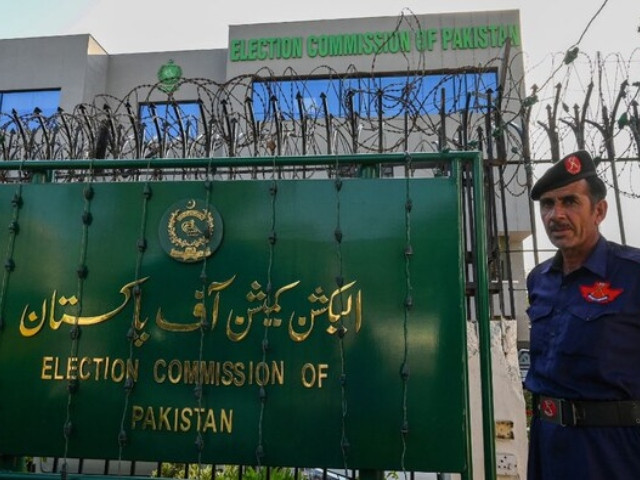ECP Stands Firm Amidst Political Storm: Defends Integrity After Supreme Court Verdict on Reserved Seats

"ECP Stands Firm Amidst Political Storm: Defends Integrity After Supreme Court Verdict on Reserved Seats"
In the ever-volatile landscape of Pakistani politics, the Election Commission of Pakistan (ECP) finds itself at the eye of a brewing storm. On a recent Saturday, the ECP robustly countered what it described as 'baseless propaganda' circulating in certain media quarters. This comes in the wake of the Supreme Court’s constitutional bench decision that dismissed the Pakistan Tehreek-e-Insaf (PTI)-turned Sunni Ittehad Council’s (SIC) review petition concerning the allocation of reserved seats. This judicial decision has paved the way for the ruling coalition, spearheaded by the Pakistan Muslim League Nawaz (PML-N), to consolidate its power as the single largest party, securing a formidable two-thirds majority in the National Assembly.
Against this backdrop of shifting political dynamics, the ECP has reiterated its constitutional mandate, staunchly defending the legality of its decisions. The Commission has labeled the circulating claims as contrary to facts, suggesting they are designed to mislead the public. In a forthright statement, an ECP spokesperson highlighted that certain media circles are engaged in a campaign of 'baseless propaganda' against the Commission following the Supreme Court's decision. The spokesperson declared this narrative to be rooted in falsehoods, unjustifiably targeting the Commission with criticism.
The ECP's statement underscored that historical precedents and numerous decisions by the superior judiciary serve as irrefutable evidence of the Commission's adherence to its constitutional and legal duties. 'The Supreme Court has repeatedly upheld the position of the Election Commission,' the statement asserted. For instance, during the Senate elections, the ECP's position on the secret ballot and show of hands procedures, which align with Article 226 of the Constitution, was validated by a Supreme Court bench led by then Chief Justice Gulzar Ahmed.
Moreover, in the disqualification election in Daska, the ECP's decision was not only upheld by the Supreme Court bench under then Chief Justice Umar Ata Bandial but was also recognized as a constitutional action. Similarly, the Supreme Court bench headed by then Chief Justice Qazi Faez Isa endorsed the ECP's legal interpretation concerning PTI’s intra-party elections.
Further illustrating its steadfastness, the ECP pointed to the case of the All Pakistan Muslim League (APML). When the Commission delisted APML for failing to conduct intra-party elections, a challenge by APML in the Supreme Court saw the Court uphold the Commission’s decision. Following this precedent, the ECP delisted several other parties that failed to comply with the law, reinforcing its commitment to legal compliance.
The Supreme Court also sided with the ECP regarding Punjab Election Tribunals, rejecting the Lahore High Court’s decision and affirming the Commission’s stance. In the recent case concerning the reserved seats of the Sunni Ittehad Council, both the Peshawar High Court and the Supreme Court constitutional bench have upheld the Commission’s position as constitutional and legal.
The ECP's spokesperson emphasized that these judicial decisions are undeniable proof that the Election Commission remains impervious to political pressure, public clamor, or the pursuit of popularity. 'The ECP performs its duties solely based on constitutional requirements, legal jurisdiction, and evidence,' the spokesperson reiterated. The Commission, a constitutional institution, stands unyielding against the unscrupulous tactics of any political party or vested interest group, and thus, it is inappropriate to hold the Commission accountable for perceived shortcomings and weaknesses.
🔮 Fortellr Predicts
Confidence: 85%
The current situation involves the Election Commission of Pakistan (ECP) standing firm amidst a storm of political criticism following a Supreme Court verdict allowing the ruling coalition led by the Pakistan Muslim League Nawaz (PML-N) to consolidate its power. Given historical parallels, such as the Superior Electoral Court (TSE) in Brazil during contentious elections, the ECP’s refusal to bow to external pressures may ultimately bolster its credibility in the eyes of both the judiciary and the international community. This scenario underscores the judiciary's pivotal role in reinforcing democratic norms, particularly in politically charged environments. In the short term, the ECP's reaffirmation of its legal and constitutional role is expected to maintain institutional stability. However, if political factions, particularly those opposed to the current government like PTI, continue to press claims of irregularities, this could escalate tensions, leading to calls for electoral reforms or a broader political crisis. Historically, electoral bodies that maintain transparency and align with the judiciary's support tend to stabilize such crises. In this case, the outcome will heavily rely on the ECP maintaining its stance and the Supreme Court continuing its support. This will either defuse the situation by reinforcing public trust or, conversely, exacerbate tensions if perceived biases increase. For Pakistan, successful navigation of this political storm may depend on how well these institutions can collaborate to reassure the public while addressing legitimate grievances detectable within their electoral processes.